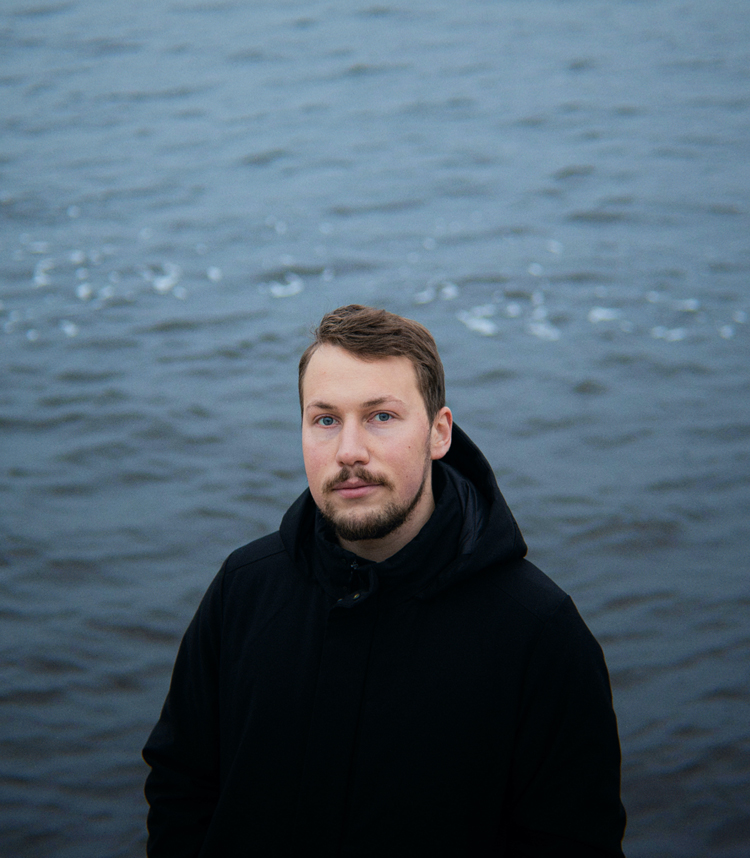Away tells the fantastical story of a boy travelling across an island on a motorcycle, trying to escape a dark spirit and get back home. Along the way he makes a series of connections with different animals and reflects on the possible ways he ended up on the island.
Gints Zilbalodis directed, wrote, produced, animated and scored Away, working on the film for a staggering three and a half years. We sat down with Zilbalodis to discuss this single-handed project and what he has coming up next…
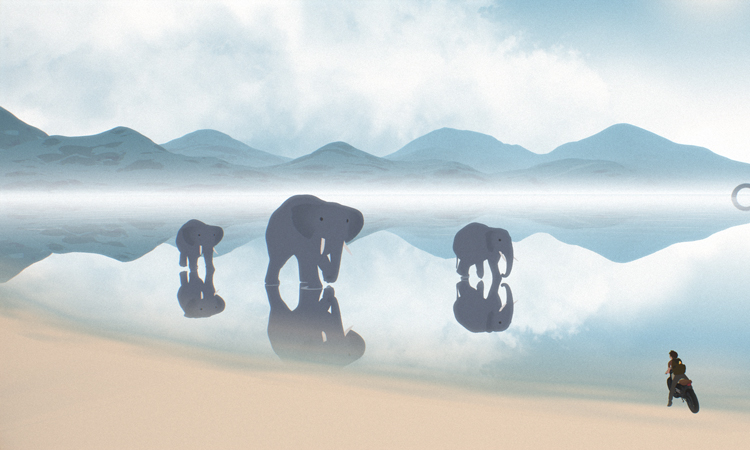
When did you first get the idea for Away?
What were your inspirations when creating Away?
The works of Studio Ghibli, especially the TV series Future Boy Conan, which technically isn’t a Ghibli production since Hayao Miyazaki made it before the studio was established. Also, indie games like Journey, Inside and Shadow Of The Colossus. Films like The Motorcycle Diaries, Duel, It Follows, The General and many others.
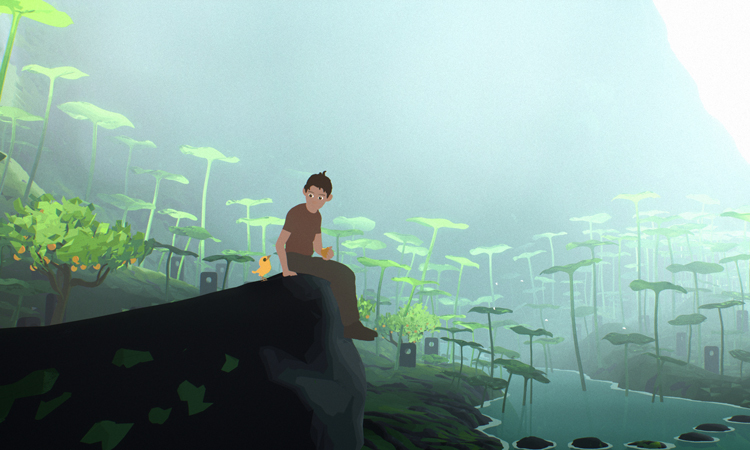
Why did you decide to split Away into chapters?
I figured that it would be difficult to convince people to fund this project as a feature film as I was very inexperienced, so I decided to split the story in four parts and make them as four separate short films which could eventually be put together again and shown as a feature. This also made the transition from making shorts to features a bit easier for me, because I could focus on one chapter at a time and not be overwhelmed by the amount of work to do!
Did you base the landscapes of the world in Away on anywhere in particular?
The landscapes are a mix of various real and imagined places. Some of the inspirations were Iceland, Lanzarote and Japan.
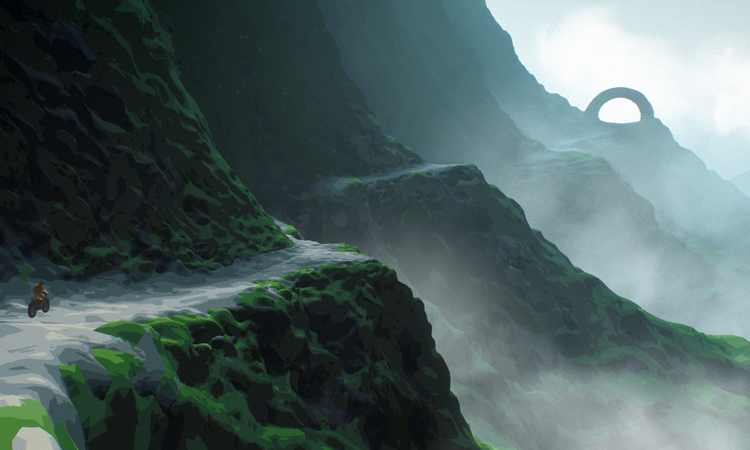
What were your thoughts behind the dark spirit and did you base the creature’s design on anything in particular?
I didn’t want to show him as something evil or angry. He’s more like an objective force of nature. I was inspired by the film It Follows in which the monster moves quite slowly which I found to be a lot more tense and a better representation of anxiety.
What were your inspirations for the film’s score and at what point in the animation process did you create the score?
Some of my favourite minimalist musicians; Max Richter, Philipp Glass, Trent Reznor and Atticus Ross. This was the first time I’ve done the score myself. I have no experience with making music, but I figured this could actually be beneficial in this case, because I wanted to avoid a traditional orchestral score. I thought that a more atmospheric, minimalistic score would be better suited for Away.
I learned how to make music by experimenting a lot. At first the professional music creation software was a bit too overwhelming for me, so I used some apps on my phone which are designed with beginners in mind. Once I understood the basics, I moved on to my computer which has a lot more ways to manipulate the sounds.
I started making the music while the animation wasn’t finished yet. This allowed me to integrate it better into the edit and let music guide the rhythm of the film. I’ve already started making the music for my next film even before the script is finished!
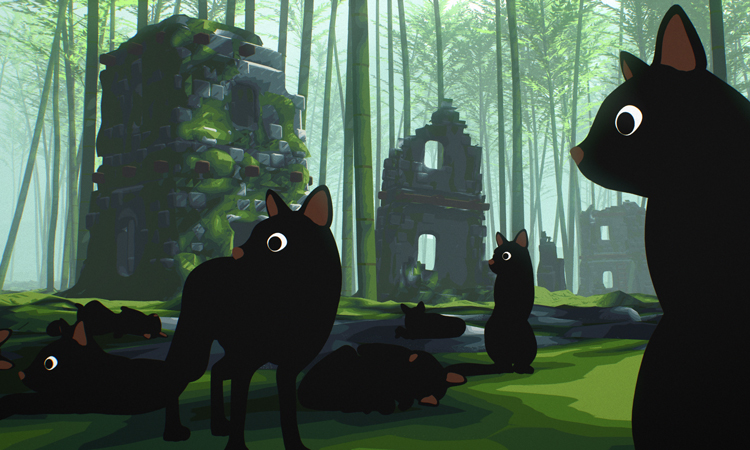
What would you like for audiences to take away from Away?
The great thing about animation or visual storytelling in general is that with a certain amount of abstraction and symbolism, people can fill in the gaps of the film with their imagination and personal experiences. I want them to create unique interpretations based on the context in which it was viewed. I hope that Away shows that the need to find a connection with others is an always relevant theme and that it’s necessary to keep going and eventually things will improve.
What’s next for you?
I’m currently working on my second animated feature film called Flow. It’s based on one of my first short films called Aqua which is a story about a cat who’s afraid of water and finds himself in a small boat in the ocean after a great flood overtakes the land. This will be a much bigger film in terms of production and I hope to work with a team this time! This will also be reflected in the themes of the film as the main character is someone who’s used to working alone and ends up working with others…
